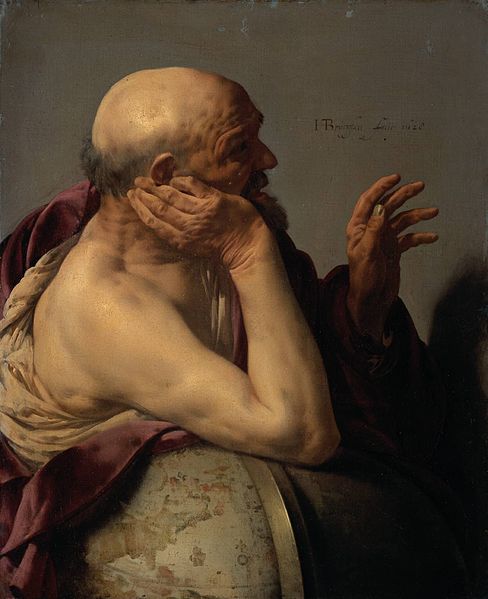Euthyphro, by Plato, is a Socratic dialogue whose events occur in the weeks before the trial of Socrates, between Socrates and Euthyphro. The dialogue covers subjects such as the meaning of piety and justice. As is common with Plato's earliest dialogues, it ends in aporia.
Henri Estienne's 1578 edition of Euthyphro, parallel Latin and Greek text.
A Roman bust of Socrates (Louvre)
Plato, born Aristocles, was an ancient Greek philosopher of the Classical period who is considered a foundational thinker in Western philosophy and an innovator of the written dialogue and dialectic forms. He raised problems for what became all the major areas of both theoretical philosophy and practical philosophy, and was the founder of the Platonic Academy, a philosophical school in Athens where Plato taught the doctrines that would later become known as Platonism.
Roman copy of a portrait bust c. 370 BC
Plato was one of the devoted young followers of Socrates, whose bust is pictured above.
The mathematical and mystical teachings of the followers of Pythagoras, pictured above, exerted a strong influence on Plato.
Heraclitus (1628) by Hendrick ter Brugghen. Heraclitus saw a world in flux, with everything always in conflict, constantly changing.





